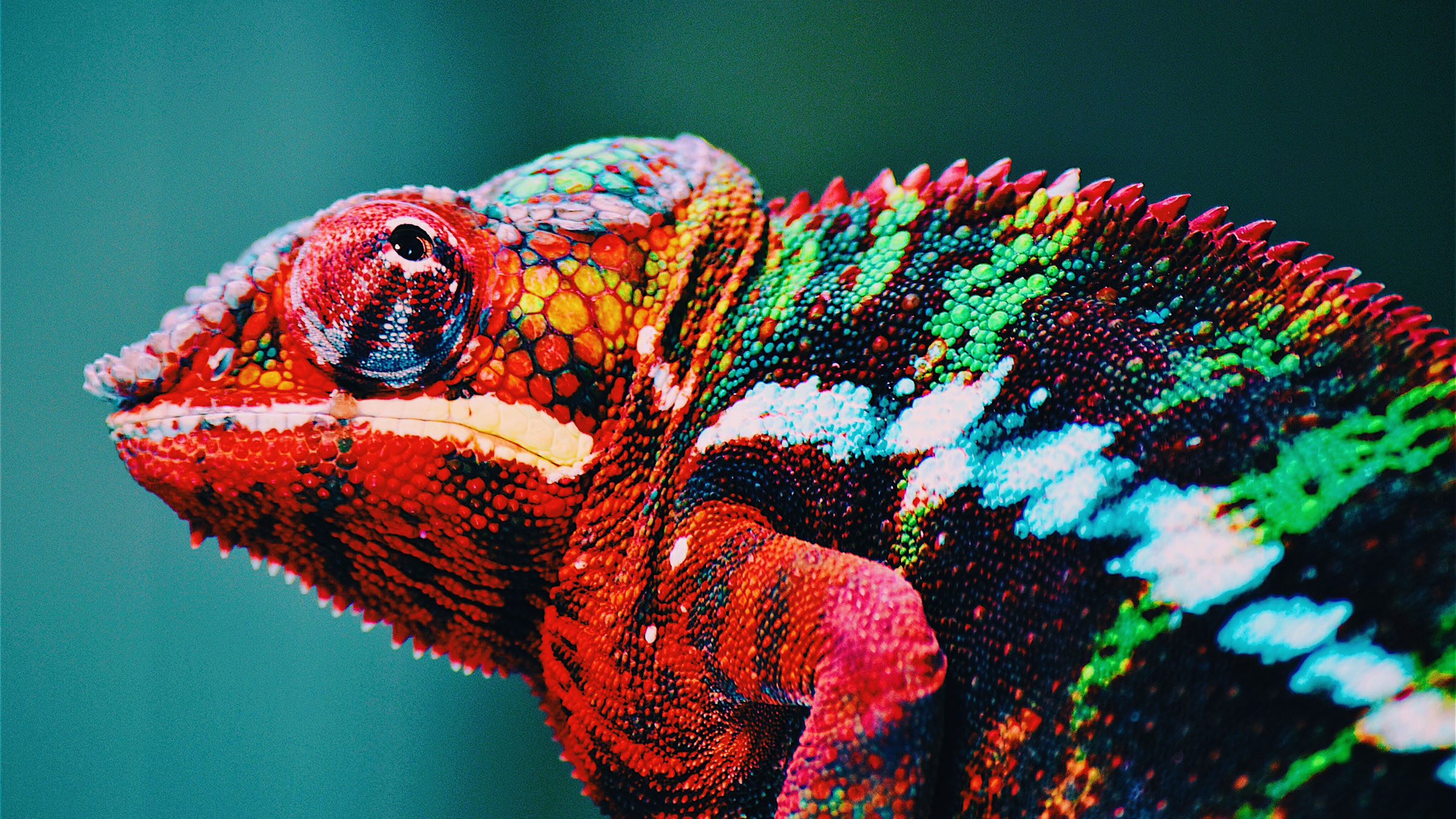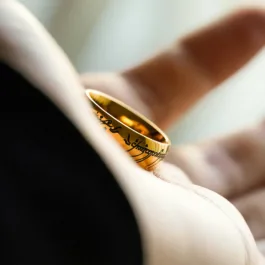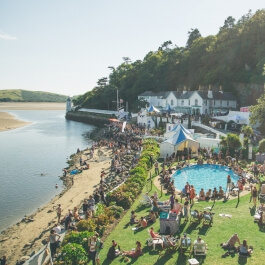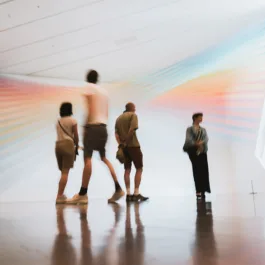If we were to ask you to close your eyes and imagine what a wildlife documentary sounds like, it’s likely many of you will think of a hushed, upper-class British voice commentating footage of the wonders of nature. Whether you are familiar with Sir David Attenborough or not, his titanic influence over the genre of nature documentaries means that nearly everyone who has enjoyed such a film in the last half century has witnessed his extraordinary influence.
Now in his late nineties, the veteran broadcaster continues to advocate for change as he fights for the future of this planet, engaging multiple generations to protect our home and every creature that lives on it. But how did Attenborough go from a television host to a documentary powerhouse, spokesperson for the natural world and inspiration to millions? Let’s have a look.
An Accidental Icon
Attenborough’s personal journey is inextricably linked to that of television as a medium. In 1950, at the age of 24, his move into entertainment coincided with the rise of TV, something many in the UK and around the world were still sceptical of at the time. The BBC, then primarily a radio service, was experimenting with programming from Alexandra Palace in London, the first-ever broadcasting studio, deciding what kind of shows would best suit what was then known in the industry as ‘The Talks’.
Incredibly, one of the most well-known television personalities in history would enter show business having never experienced it!
“I hadn’t got a television set,” Attenborough said in a BAFTA interview about his attempts to get his first job at the BBC. “My wife to be, my girlfriend’s parents had one. I had applied for a job in radio and didn’t get an interview. A fortnight later, someone from the BBC wrote to me and said, ‘we’ve got this new thing called television. People are being quite rude about it, but we think there could be something in it. Would you like to come to (broadcasting centre) Alexandra Palace and see if you’d be interested?”
Lucky for us, he was interested – although again the role we know him best for came about quite by accident. Attenborough was a producer on a show called Zoo Quest, where cameras followed London Zoo workers as they captured animals in the wild to bring to London (a practice which was common in the ‘50s, but is viewed as outdated compared to modern conservation methods). When the first episodes were broadcast in 1954, Attenborough was forced to step in for the planned host, reptile expert Jack Lester, who had taken ill after returning from Africa. These early episodes were a huge success, meaning Attenborough would continue hosting the series for a decade.
Although he never intended to enter this world, the accidental TV host admitted to feeling a lot of excitement at becoming part of the fledgling industry, and being the focus of so many people’s attention in the days before multiple TV channels: “You drove away from the evening… and there was that eerie glow on those curtains (coming from households), then you know there were people there with a television set, and they had been watching you, they had seen your programme!” he beams, looking back. “You almost wanted to stop and knock on the door and say ‘do you think it was alright? I’m awfully sorry about that last bit!’”
Creating A Style
Attenborough would spend much of the ‘60s and early ‘70s in administration, running one of the BBC’s new TV channels, but he would periodically appear in front of the camera, usually in nature programming. He was becoming synonymous with this type of show because of the context of the time. Think about it: the first time we see exotic animals or locations are usually through a screen, either on the television or via the internet. Before both were widely available, people saw very little of the other side of the world except in books, at zoos or on the occasional newsreel in cinemas. Television offered the opportunity to visit far-off locations for the first time, so that someone in London could see the wilds of Africa or South America without leaving their sofa. This new experience was brought to them by Attenborough, who became associated with the natural world before he revolutionised the way it was covered.
In 1979, the first series of Life on Earth was broadcast, which changed the way we look at nature. Building on several techniques that were new at the time, Attenborough would be among the first to put his subject front-and-centre. While he would do pieces speaking into the camera, he was one of the first filmmakers to put the lens on the animals as he narrated the processes of their lives. Those processes would be captured in ways that people had never seen before, from mating rituals to hunting habits. Mankind took a backseat both figuratively and literally as we were invited to quietly observe nature unobstructed.
Life on Earth spawned decades of subsequent documentaries in which Attenborough explored species, habitats and phenomena in a way that was accessible to the general public. Indeed, that was the purpose behind the 13-part series, which was an unusual format for a documentary at the time, but now is commonplace.
Speaking at a retrospective of his life, Attenborough recalled: “We set to more or less say, by implication, to the viewers, ‘look – if you want to know about this (subject) that you’ve often heard about, stay with us for 13 hours week-by-week, and at the end of it, we’ll have given you a reasonably responsible outline of what it was about.”
He certainly did that, and does so to this day. While not a scientist, Attenborough was trusted by the community for his reverence to the subject matter. He became an inspiration to millions who would go on to work in related professional fields.
The Voice of Nature
One of the most distinctive things about Sir David Attenborough’s delivery is his unmistakable presentation style. Speaking in a gentle but authoritative manner, he reveals the world around us in a way that allows the audience to realise just how wonderful and special it is – and has been all along. His hushed tones draw you in, implying that what we are witnessing is magnificent and should be treated with seriousness and respect.
Over the years, his approach has become the standard for nature documentaries; almost all programmes wishing to reach the same gravitas as Attenborough’s work feature a calm, commanding narration voice. It’s arguable that figures such as Professor Neil DeGrasse Tyson and Brian Cox have been influenced by Attenborough in the way they communicate science to the public: steady but charismatic voices that gently reveal their genuine delight in their field of study.
Attenborough’s style continues to be so persuasive, there is even a term for it: The Attenborough Effect, describing instances when a subject from one of his films is introduced to a mass audience, and a conversation begins that leads to real change.
One famous example is the progression in our approach to single-use plastics. In 2017, an episode of his show Blue Planet II discussed the effect of single-use plastics on our ecosystem, particularly the amount of plastic in our oceans and the impact it has on sea life. Seeing how much damage it was doing created enough concern to make way for change; a report by the Global Web Index even drew a direct line between Blue Planet II and a 53% reduction in single-use plastics in the year since its broadcast.
While he is enormously respected, Attenborough also is aware of his reputation and isn’t afraid to poke a little fun at himself. Various TV and radio hosts have asked him to offer one of his famous narrations to funny videos or pop culture moments, such as a time in 2015 when he agreed to narrate the opening of the video for Adele’s hit single “Hello”. His only concern was, “will Adele be cross with me?” It seems unlikely, given that the singer is a self-professed fan, telling YouTuber NikkieTutorials that his documentaries were her preferred viewing over popular reality TV shows such as The Real Housewives of New Jersey.
Saving Our Future
He changed the way we view television and the natural world, but apart from entertainment and education, Attenborough’s final act is as an advocate for the safety and future of the world he has covered so much of, as it faces a global climate crisis.
With this vast legacy to point to, one could understand if the Knight of the Realm wanted to step back and let others take up the fight for the planet. However, at 95 years old, Attenborough spoke in Glasgow at the 2021 United Nations Climate Change Conference, also referred to as COP26. The summit saw the world’s most powerful nations come together to discuss climate change, make commitments to reduce fossil fuel emissions, and evaluate how climate science can be applied affordably to developing nations.
In his continuing quest to leave behind knowledge and inspiration for future generations, Attenborough talked about how we can build a more sustainable future. Rather than decrying mankind’s impact on the world, he celebrated humanity as “the greatest problem solvers”, arguing that “if working apart we are a force powerful to destabilise our planet, surely working together we are powerful enough to save it.”
He also pointed to the natural world as a solution to climate change: “Nature is a key ally,” he argued. “Whenever we restore the wild, it will recapture carbon and help us bring back balance to our planet. As we work to build a better world, we must acknowledge that no nation has completed development, because no advanced nation is yet sustainable. All have a journey still to complete, so that all nations still have a good standard of living, and a modest footprint.”
It was a speech that moved millions, but also shows the measure of a man who, even in his advanced years, is still campaigning for a future he will not see. His true legacy will be one of service. In contrast with many political and business leaders who focus on short-termism or self-interest, here is an influential figure who wants nothing more than to help those who come after him.
Using not only his knowledge but also his experience as someone who has seen much change over the last century, his is a voice of reason but also optimism. As he concludes in his speech: “In my lifetime I’ve witnessed a terrible decline. In yours, you could and should witness a wonderful recovery”.
While the finality with which he speaks about his own life is sad to see for the millions that have grown up on his work, it is a fitting final chapter for someone who has made his name giving knowledge to the world. Sir David Attenborough brought nature and exploration to those who had rarely ventured further than the end of their own street, and inspired so many to look beyond the horizon for what remained to be discovered. We know a lot more about the planet we live on precisely because he was able to utilise television as more than a distraction – as a way to inform yet also entertain.
There will be a point when life on earth continues without the great man, but thanks to seven decades of creativity, it is forever changed by the things he has achieved. If we follow his advice for the future, his influence will benefit generations to come.














Sorry, the comment form is closed at this time.